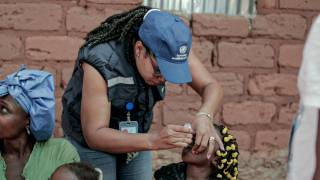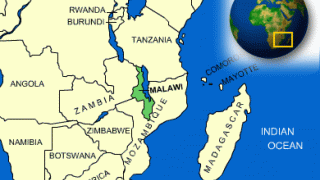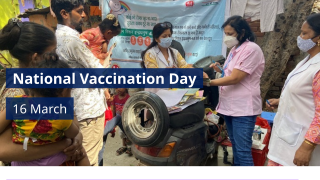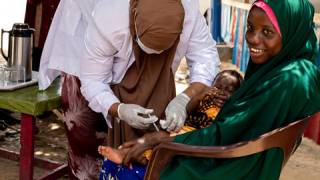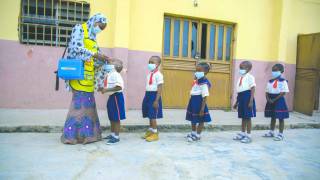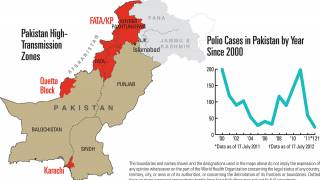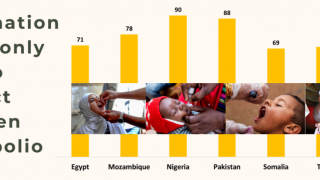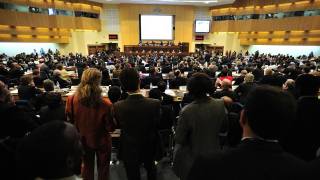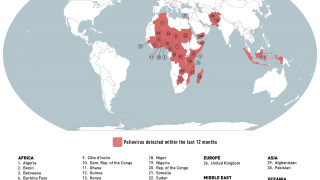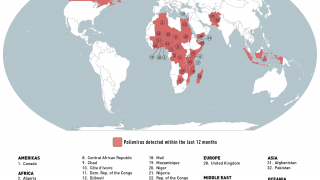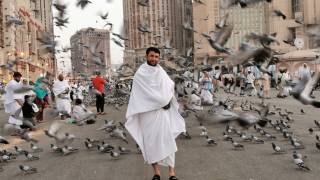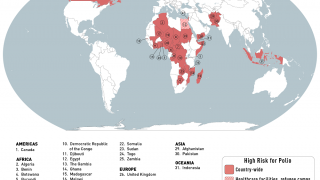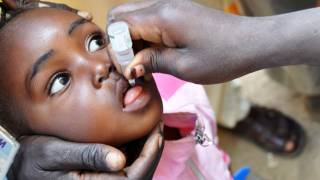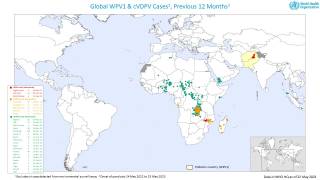New and Old Vaccines Needed for Many Developing Countries

While much anticipated vaccines for malaria and dengue may finally be within reach, many of the world’s existing vaccines have remained unavailable to developing countries.
The recent outbreak of yellow fever in Angola shows how deadly infectious diseases can return when gaps in vaccination are allowed.
The World Health Organization (WHO) Director-General Margaret Chan noted that the recent outbreak of yellow fever disease has happened despite a vaccine being available for nearly 80 years.
“The world has had a safe, low-cost, and effective vaccine that confers lifelong protection against yellow fever since 1937,” she said. “Yellow fever vaccines should be used more widely to protect people living in endemic countries.”
Yellow fever virus is found in tropical areas in South America and Africa. The virus is transmitted to people by the bite of an infected mosquito. Yellow fever is a very rare cause of illness to U.S. travelers. However, the CDC recommends travelers 9 months and older receive the yellow fever vaccination if planning on visiting infected areas in Africa or South America.
The majority of persons infected with yellow fever virus have no illness or only mild illness.
In persons who develop symptoms, the incubation period (time from infection until illness) is typically 3–6 days.
The initial symptoms include sudden onset of fever, chills, severe headache, back pain, general body aches, nausea, and vomiting, fatigue, and weakness. There is no standard treatment for yellow fever. The treatments given depend on the symptoms the patient presents.
According to the WHO, only one of the world’s existing vaccines, the smallpox vaccine, has reached the ultimate goal of eradicating a disease entirely.
In 2015, the world inched closer to eradicating one other disease through the use of immunisation, when Nigeria became the last country in Africa to rid polio.
“We are in the endgame period of polio as we expect to see soon the interruption of polio in the remaining two countries of Afghanistan and Pakistan,” Dr Jean-Marie Okwo-Bele, Director of the WHO Department for Immunization, Vaccines and Biologicals told IPS.
Last month an ambitious plan to switch to a new polio vaccine was rolled out globally. The switch took place because the vaccine no longer needed to fight against type 2 polio which has not been seen since 1999, said Okwo-Bele.
“The pipeline for vaccines is so big now that we should get better at using the currently available vaccines so that we can get rid of these vaccines,” said Okwo-Bele. “The past year only we could work and almost secure the availability of dengue vaccine, malaria vaccine and we are almost there for the Ebola vaccine,” he said.
Although recent and promised new additions to the list of vaccinations offer hope, some developing countries are concerned that high costs, particularly of newer vaccines, mean that their children will not be able to benefit from these advancements.
One way that the WHO is addressing this problem is through establishing its own database of prices that governments pay for vaccines. Okwo-Bele told IPS that countries without “negotiating powers” pay “far higher” prices for vaccines than other countries.
Fortunately, not all developing countries have to fend for themselves on the vaccines market. The world’s poorest countries have access to much lower prices negotiated collectively by organisations including the vaccine alliance – GAVI, UNICEF and the Gates Foundation.
While there are provisions for humanitarian organisations to access lower priced measles vaccines, the same is not true for the relatively newer and more expensive pneumococcal vaccine, reports the CDC.
Overall, Okwo-Bele noted that vaccines should be seen as an important investment regardless of the context. “It’s linked to the basic saying, prevention is better than a cure, and prevention is cheaper than the cure, and that stands wherever you are whether you’re in the developed or developing countries,” he said.
Our Trust Standards: Medical Advisory Committee






